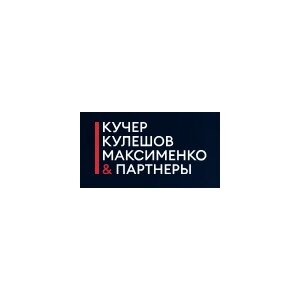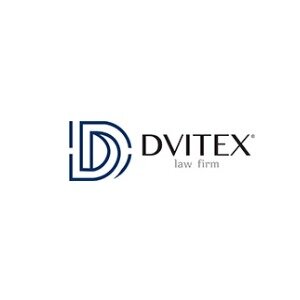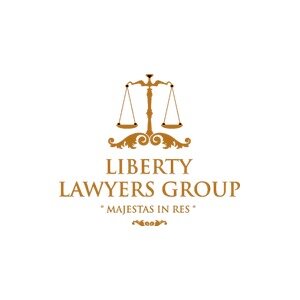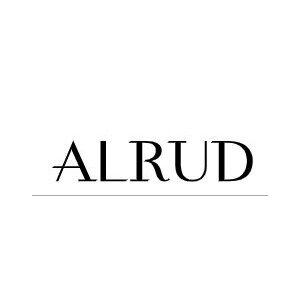Best Renewable & Alternative Energy Lawyers in Moscow
Share your needs with us, get contacted by law firms.
Free. Takes 2 min.
List of the best lawyers in Moscow, Russia
About Renewable & Alternative Energy Law in Moscow, Russia
Renewable and alternative energy in Moscow, Russia, is a sector that has grown in importance as both the government and private sector look for ways to decrease reliance on traditional energy sources such as oil and gas. Renewable energy includes solar, wind, hydro, and biomass sources. Laws and regulations in this sector are intended to promote energy efficiency, develop infrastructure for renewables, support investment, and ensure compliance with both local and federal standards. While Russia's national energy policy still heavily favors fossil fuels, Moscow has started initiatives to modernize its energy mix and encourage sustainable alternatives within the city. Navigating this evolving legal landscape requires an understanding of both technical and regulatory frameworks.
Why You May Need a Lawyer
In the field of renewable and alternative energy, legal assistance can be vital for several scenarios. Individuals and businesses may face complex regulations when planning to construct or operate renewable energy facilities, such as solar panels, wind turbines, or biomass plants. Procurement, financing, and licensing processes can be challenging, often requiring detailed documentation and negotiations with both government authorities and private partners. Disputes may arise over land use, environmental impact assessments, intellectual property rights for innovative technologies, or compliance with safety and emission standards. A qualified lawyer can help clarify obligations, resolve conflicts, manage contracts, navigate governmental approvals, and represent your interests in court or administrative proceedings.
Local Laws Overview
Moscow's legal framework for renewable and alternative energy is shaped by federal Russian laws as well as local city regulations. Key federal laws include the Federal Law on Energy Saving and Increasing Energy Efficiency and the Federal Law on Electricity, which set overall standards for energy production and consumption, including renewables. Locally, Moscow implements its own programs to encourage investment in clean technologies, reduce greenhouse gas emissions, and modernize infrastructure for alternative energy. Permits are often required for construction and operation of energy installations, and specific environmental impact assessments are mandatory for many projects. Tax incentives, grants, and subsidies are available for certain types of green energy initiatives. All projects must comply with Russian technical standards (GOSTs) and local planning requirements. Ongoing changes in the law make it important to regularly consult up-to-date legal advice.
Frequently Asked Questions
What types of renewable energy are most common in Moscow?
The most common types of renewable energy in Moscow are solar and biomass. There is also limited development of wind projects and increasing emphasis on energy efficiency in buildings.
Are there government incentives for renewable energy projects?
Yes, both federal and Moscow city programs provide incentives such as tax benefits, subsidies, and grants for renewable energy projects, especially those that align with environmental targets.
Do I need a permit to install solar panels on my property?
In most cases, you will need to obtain official permits for installation, particularly for large or commercial systems. Procedures may vary depending on the building type and intended use.
What are the main legal risks of starting a renewable energy business in Moscow?
Main risks include non-compliance with local and federal regulations, issues with land use or zoning, environmental impact disputes, and possible changes in policy that affect profitability or operations.
How are intellectual property rights protected for new green technologies?
Russia's intellectual property laws protect inventions, patents, and trademarks. Legal counsel is recommended to properly register and defend innovative technologies related to renewable energy.
Can foreign investors participate in renewable energy projects in Moscow?
Yes, foreign investment is allowed, but there are complex restrictions and requirements. Consultation with legal experts is strongly advised before proceeding.
What is the process for obtaining an environmental impact assessment?
Environmental impact assessments (EIA) are mandatory for many projects. The process involves submitting documents to local environmental authorities, conducting studies, and responding to public and expert reviews before obtaining approval.
How are disputes resolved in the renewable energy sector?
Disputes may be resolved through negotiation, mediation, arbitration, or the court system, depending on the nature of the conflict and agreements in place.
What legal requirements exist for connecting renewable sources to the city grid?
Technical and safety standards must be met, and a connection agreement is required with the local grid operator. Approval from relevant authorities is necessary before connection.
How can I stay updated about changes in renewable energy laws?
Official government publications, industry associations, and legal advisories regularly update on law changes. Working with a local legal specialist ensures you remain informed and compliant.
Additional Resources
- The Ministry of Energy of the Russian Federation: Handles national energy policy and regulations. - Moscow City Government Department of Fuel and Energy: Oversees local sustainable energy initiatives and programs. - Russian Association of Renewable Energy: Provides resources and events for industry updates. - The Federal Service for Supervision of Natural Resources (Rosprirodnadzor): Responsible for environmental assessments and permits. - Moscow Chamber of Commerce and Industry: Offers support for investors and businesses in the renewable energy sector.
Next Steps
If you are considering a renewable or alternative energy project in Moscow, here are key steps to take:
1. Define your project's scope and objectives, making sure to research local requirements. 2. Consult with a legal specialist experienced in renewable energy law in Russia. 3. Gather and review all necessary documentation, including feasibility studies, plans, and financial models. 4. Apply for required permits and approvals through the appropriate government bodies. 5. Consider ongoing legal support for contract negotiations, compliance, and any potential disputes. 6. Stay connected with local industry organizations to monitor changes in the legal landscape.
By following these steps and seeking qualified legal advice, you can help ensure your renewable energy initiative in Moscow is compliant, efficient, and successful.
Lawzana helps you find the best lawyers and law firms in Moscow through a curated and pre-screened list of qualified legal professionals. Our platform offers rankings and detailed profiles of attorneys and law firms, allowing you to compare based on practice areas, including Renewable & Alternative Energy, experience, and client feedback.
Each profile includes a description of the firm's areas of practice, client reviews, team members and partners, year of establishment, spoken languages, office locations, contact information, social media presence, and any published articles or resources. Most firms on our platform speak English and are experienced in both local and international legal matters.
Get a quote from top-rated law firms in Moscow, Russia — quickly, securely, and without unnecessary hassle.
Disclaimer:
The information provided on this page is for general informational purposes only and does not constitute legal advice. While we strive to ensure the accuracy and relevance of the content, legal information may change over time, and interpretations of the law can vary. You should always consult with a qualified legal professional for advice specific to your situation.
We disclaim all liability for actions taken or not taken based on the content of this page. If you believe any information is incorrect or outdated, please contact us, and we will review and update it where appropriate.

















